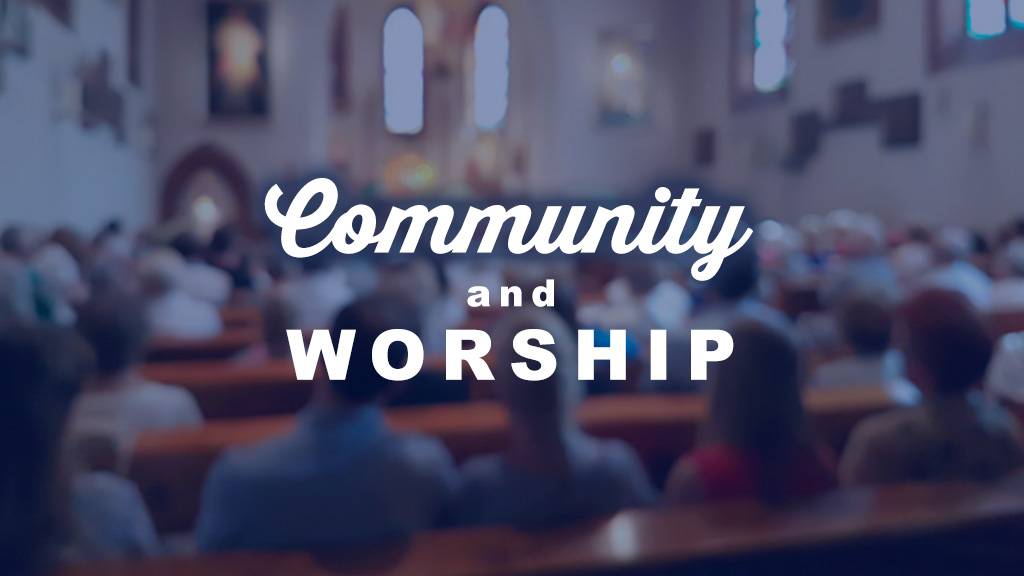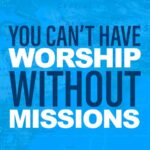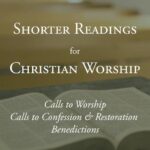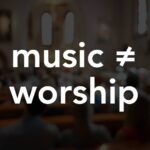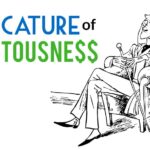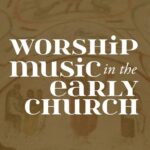The Earliest Glimpse at Community in Worship
In Acts 2:41-47, we get the first glimpse of community life among the earliest believers. At the heart of their community was worship. Since our concept of worship encompases both the daily life of the believer and the formal gatherings of the church, in Acts 2, we must determine which aspects may have been intended for gathered worship and which things were intended as an aspect of daily Christian worship.
41 Those who accepted his message were baptized, and about three thousand were added to their number that day. 42 They devoted themselves to the apostles’ teaching and to fellowship, to the breaking of bread and to prayer. 43 Everyone was filled with awe at the many wonders and signs performed by the apostles. 44 All the believers were together and had everything in common. 45 They sold property and possessions to give to anyone who had need. 46 Every day they continued to meet together in the temple courts. They broke bread in their homes and ate together with glad and sincere hearts, 47 praising God and enjoying the favor of all the people. And the Lord added to their number daily those who were being saved.
Acts 2:41-47
The Aspects of the Worship Community
In this passage, we see several elements of worship in the daily life of the believers and in their gathered church:
- Baptism (the verb form βαπτίζω is used here) among the earliest Christians often took place in non-formal settings in the time of the Apostles, but in the following centuries baptism became a formal part of the assemblies.
- The teachings (διδαχή) of the Apostles is a reference to the New Testament text that was being written during the time of the Apostles; the Old Testament text is often referred to as “the Scriptures.”
- Fellowship (κοινωνία) is more than just shaking hands and drinking coffee; it is a partnership that involves commitment and accountability. When the believers, “had everything in common,” this was a sign of their κοινωνία.
- Breaking (from κλάω) of bread is used elsewhere in the context of the Lord’s Table. In fact, “κλάω bread” is what Luke uses when recounting the Lord’s Supper in Luke 22. It is also Paul’s choice of words in 1 Corinthians.
- Prayers (προσευχή from προσεύχομαι) occurs 86 times in the New Testament.
- Wonders and signs always accompany the giving of revelation. For this reason, signs and wonders were performed in the Old Testament when the prophets gave divine utterances from YHWH. This is also the case when Jesus Christ—the divine Word—ministered on earth, and then during the six decades following the resurrection of Christ when the New Testament text was authored.
- Helping the poor may not have been a formal part of the gathered worship, but it certainly was an overflow of their worship and a vital part of their personal worship.
- Daily meetings occurred, not just Lord’s Day meetings.
- Community meals were part of the κοινωνία, and community meals may have been the context for the Lord’s Table as practiced by Christ before his death.
- Conversions of Jews and Gentles to Christianity abounded in the gathered worship and in the daily worship.
- Membership is implied by the phrase “to their number.” As part of their κοινωνία, there seems to have some sense of belonging by counting. Click here for more on church unity.
The Implications of Community Worship
So, what are we to make of this glimpse at the community worship of the earliest followers of the resurrected Christ?
I think the overwhelming theme of this pericope is their community—their κοινωνία—as the context of their worship. Whether their worship flowed from their community or their community flowed from their worship is unclear. What is clear is that community is the natural habitat of early Christian worship, for both the daily worship and the formal gatherings of the earliest Christians. There is no talk of “personal worship” here. While I believe that individuals should most certainly do things like pray, read the Scripture, and even help the poor as part of their private worship, Christians should never see there personal worship as a replacement of or more important than community worship. Whether the Church is gathered or scattered, God’s people should be seeking to please Him in every aspect of life as a community and as individuals.
